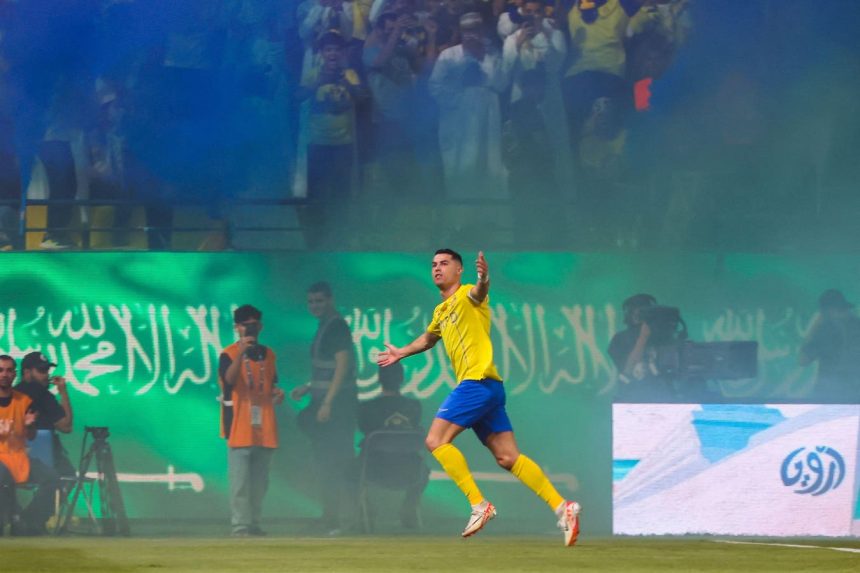As Saudi Arabia prepares to host the 2034 World Cup, a report from the sports ethics institute Play the Game sheds light on the nation’s extensive investment and influence in the world of sports, particularly soccer. With over 900 deals spanning various sports sectors, a significant portion of these—amounting to one-third—are linked to the $925 billion Saudi sovereign wealth fund. This strategy is described by Play the Game’s Stanis Elsborg as not limited to domestic events but as part of a broader initiative to enhance Saudi Arabia’s presence on the global sports stage. The report raises concerns about the implications for governance and transparency in sports, suggesting that the kingdom’s financial clout is being deployed to manipulate perceptions and generate geopolitical partnerships through sports.
Saudi Arabia’s sports agenda is characterized by high-profile sponsorships and organization of events both within the kingdom and internationally. Events including the WTA tournaments in California, the ICC Men’s T20 World Cup, and the newly launched LIV Golf highlight a pattern of using sports as a diplomatic tool to project soft power. Elsborg compares Saudi Arabia’s approach to that of Qatar and China, noting how these countries have exploited sports as a strategy to enhance their global image while distracting from human rights controversies. The kingdom’s deep ties between sports and state governance create a unique situation where influential figures in sports also play key roles in the government, which could reshape international perceptions and complicate the narrative around sports ethics.
A central figure in this sports strategy is Yasir Al-Rumayyan, who holds multiple prominent positions, including chairman of Aramco and the Public Investment Fund. His influence permeates both the sports and political arenas, paralleling figures like Qatar’s Nasser Al-Khelaïfi. Al-Rumayyan’s array of roles, from overseeing LIV Golf to managing an English Premier League club, exemplifies how intertwined athletic endeavors and state interests are in Saudi Arabia. Unlike previous attempts by nations like Qatar, which successfully hosted the World Cup in 2022, Saudi Arabia is relying heavily on its financial power to make a bold statement on the global sports stage with the 2034 World Cup.
The financial commitment to soccer is staggering, with 194 sponsorships identified by Play the Game, indicating a deliberate effort to dominate the sport. Saudi Arabia has already aligned itself with major events such as the upcoming 2026 World Cup, where its influence will be felt through sponsorship agreements. Additionally, the country has entered into 48 memoranda of understanding with national soccer federations to solidify its presence in the sport. FIFA’s expedited endorsement of Saudi Arabia’s World Cup bid, despite criticism over its human rights record, emphasizes the coercive power dynamics at play, showcasing how financial resources can overshadow governance challenges in international sports.
FIFA’s readiness to aid Saudi Arabia’s bid raises pressing ethical questions. Historically, FIFA has asserted a commitment to reforming its values following well-documented corruption scandals. Yet the organization’s collaboration with a nation criticized for its human rights practices suggests a willingness to compromise those values for financial gain. Elsborg points out that this alignment is primarily motivated by monetary considerations. FIFA’s reliance on hosting nations to fund its extravagant events drives this partnership forward, especially under the leadership of Gianni Infantino, who has cultivated close ties with Saudi officials, particularly Crown Prince Mohammed bin Salman.
As the 2034 World Cup looms on the horizon, the implications of Saudi Arabia’s involvement in global sports extend beyond mere event hosting; they delve into the realms of governance, ethics, and international relations. The potential for soft power projection is significant as the kingdom seeks to reinforce its legitimacy on the world stage. Simultaneously, the global sports community faces the moral dilemma of engaging with entities that may not adhere to universally accepted human rights standards. The unfolding relationship between FIFA and Saudi Arabia prompts a multi-faceted discussion about the future of sport, ethics, and governance in an age marked by economic power and political ambition.



